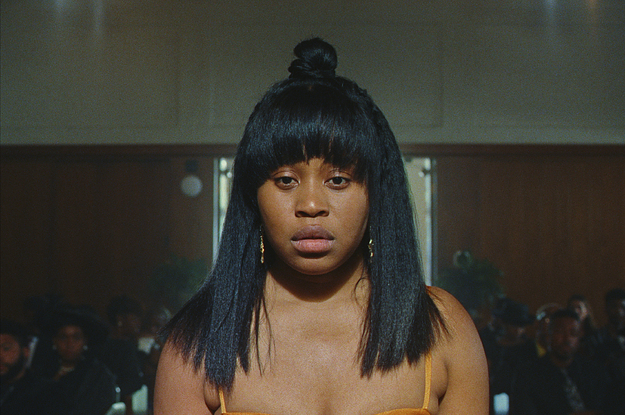On the present’s strongest, Swarm showcases how Dre’s obsessive fixation with Ni’Jah is a sublimation of her complicated relationship with Marissa in addition to a projection of her incapability to keep up substantive or formative connections with ladies in her life. It’s a compelling angle, however the present fails to have interaction with among the most typical threads throughout any stanbase — the formation of parasocial relationships and the sense of constructed group, whether or not real or not.
In Swarm, Ni’Jah — maybe since she’s based mostly on the famously personal Beyoncé — largely exists in visible context solely, with all insights into her persona and stature encapsulated by the reactions of followers and critics alike. There may be some acknowledgment of those layers — within the premiere, Marissa realizes that Dre nonetheless tweets from a Swarm account and tells her “these aren’t your folks, these are some crazy-ass followers who don’t give a fuck about you.” As Dre descends additional into insanity, nonetheless, her fandom turns into an more and more isolating endeavor, which belies the names of their fanbases, each metaphorical and literal: Swarm. Navy. Military. Hive. All point out participation in a collective expertise of celeb worship.
Stans defend their beloved entertainer’s standing, public notion, and perceived energy, not solely due to what that artist represents to them individually, however due to the rewards they reap from their investments, nonetheless nominal: elevated group, a presale code, a thank-you word on Instagram, or discounted merch. Such presents rationalize and encourage their mass engagement.
Swarm doesn’t fairly totally grasp this. In Episode 6, a Black girl detective searches for Dre in a real crime mockumentary. A Swarm member contributes to the doc, expressing how the Swarm could also be militant, however they wouldn’t mobilize to commit bodily violence, as texts of threats of violence despatched to strangers on the web by Swarm members scroll on the display screen. It’s an fascinating juxtaposition, however Dre by no means sought validation from her “hive” to bolster her decisions. “There are often some components that contribute to a toddler lashing out,” a social employee says to the lead detective. “I don’t respect you portraying [foster children] as monsters,” she provides. “You want there to be a motive she was so tousled so that you don’t have to comb your personal entrance door and understand you are simply as flawed. That woman was lonely, and she or he was searching for acceptance.”
In idea, this might function a compelling entry level to border how standom just isn’t a psychological sickness; it’s a compulsion accessible to whoever chooses to let the comforting artifice of parasocial bonding to a star function a supply of energy. However in follow, the present struggles to put declare to that angle, forfeiting any examination of the assorted impetuses that may allow the extra poisonous fringes of stan exercise in favor of narrative prospers.
Like “Work Ethic!”, Swarm boldly contends with hyper-relevant matters with deft ability. However each conclude with open-ended and unanswered questions. “Work Ethic!” demurred on immediately confronting whether or not there was worth in assessing “good” versus “unhealthy” Black artwork; whereas Swarm makes pointed satirical nods to the tradition of digital fandom and the extremities it may take. However it stops in need of making a better cultural level about social habits and celeb, in the end giving Fishback’s notable efficiency heart stage. It’s a welcome compromise, though one which takes the sting out of the premise. ●




